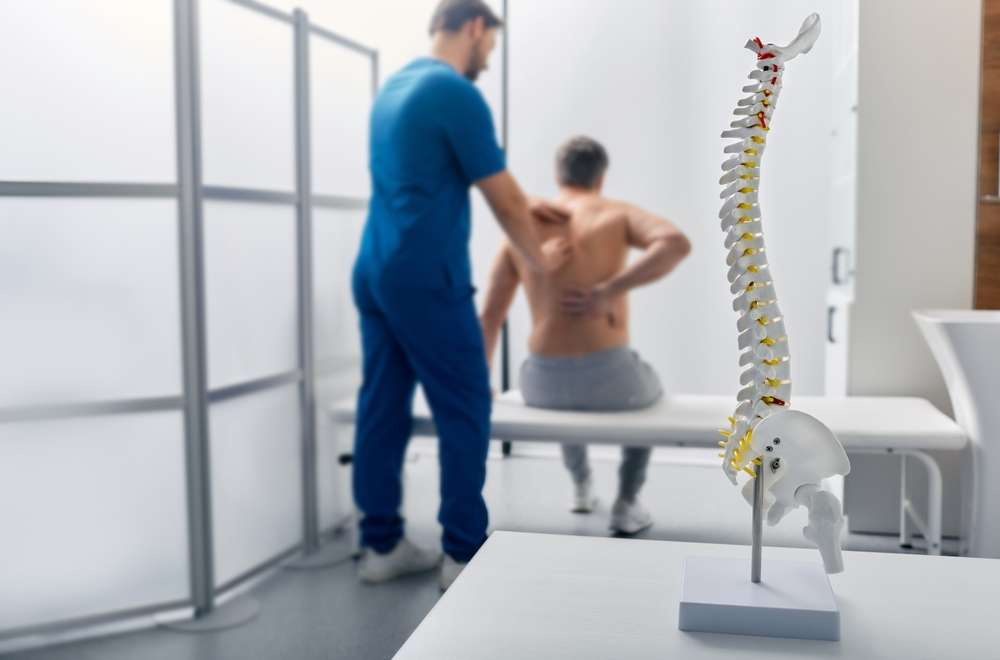Overview of Spine Specialists in the United States
Spine specialists in the U.S. are medical professionals who focus on diagnosing and managing conditions related to the spine, including injuries, chronic pain, and degenerative disorders. These specialists may include orthopedic surgeons, neurosurgeons, or physiatrists depending on the care setting.

What types of spine specialists are available in the US?
In the United States, several types of medical professionals specialize in spine care. The most common include:
-
Orthopedic Spine Surgeons: These specialists are trained in the surgical treatment of spinal conditions, focusing on the musculoskeletal aspects of the spine.
-
Neurosurgeons: While they treat various neurological conditions, many neurosurgeons specialize in spine surgery, addressing issues related to the nervous system and spine.
-
Physiatrists: Also known as physical medicine and rehabilitation physicians, they specialize in non-surgical treatments for spine-related issues.
-
Pain Management Specialists: These doctors focus on diagnosing and treating chronic pain, including conditions affecting the spine.
-
Chiropractors: While not medical doctors, chiropractors specialize in spinal manipulation and other non-surgical treatments for back pain.
How do I find the best spinal neurosurgeon near me?
Finding a top-rated spine surgeon or the best spinal neurosurgeon in your area requires some research and consideration. Here are some steps to help you in your search:
-
Consult your primary care physician for referrals to reputable spine specialists in your area.
-
Check with your insurance provider for a list of in-network spine specialists.
-
Use online resources and physician directories to search for spine specialists in your location.
-
Read patient reviews and ratings, but be cautious of overly positive or negative reviews.
-
Verify the specialist’s credentials, including board certifications and experience in treating your specific condition.
-
Schedule consultations with multiple specialists to find the best fit for your needs and preferences.
What conditions do spine specialists in the USA commonly treat?
Spine specialists in the United States are equipped to diagnose and treat a wide range of conditions affecting the spine. Some of the most common issues they address include:
-
Herniated discs
-
Spinal stenosis
-
Scoliosis
-
Degenerative disc disease
-
Spinal fractures
-
Sciatica
-
Chronic back pain
-
Spinal tumors
-
Spinal cord injuries
-
Spondylolisthesis
These specialists use various diagnostic tools, such as MRI, CT scans, and X-rays, to accurately assess spinal conditions and develop appropriate treatment plans.
What are the latest advancements in spine care in the United States?
The field of spine care in the USA is constantly evolving, with new technologies and techniques emerging to improve patient outcomes. Some recent advancements include:
-
Minimally invasive spine surgery techniques, reducing recovery time and complications.
-
Artificial disc replacement as an alternative to spinal fusion for certain conditions.
-
Robotic-assisted spine surgery for increased precision and reduced invasiveness.
-
Stem cell therapy and regenerative medicine for spinal cord injuries and degenerative conditions.
-
Advanced imaging technologies for more accurate diagnosis and treatment planning.
These innovations are helping spine specialists provide more effective and less invasive treatments for their patients.
What should I expect when consulting a spine specialist in the USA?
When visiting a spine specialist in the United States, you can generally expect the following:
-
A thorough review of your medical history and current symptoms.
-
A physical examination to assess your range of motion, strength, and any neurological deficits.
-
Discussion of any previous treatments or therapies you’ve undergone.
-
Ordering of diagnostic tests, if necessary, such as X-rays, MRI, or CT scans.
-
Explanation of your diagnosis and recommended treatment options.
-
Development of a personalized treatment plan, which may include conservative measures, physical therapy, medications, or surgery.
-
Discussion of potential risks and benefits of the proposed treatments.
-
Opportunity to ask questions and address any concerns you may have.
How do I compare top-rated spine surgeons in my area?
When comparing top-rated spine surgeons or back surgeons in your area, consider the following factors:
| Surgeon/Practice Name | Specializations | Years of Experience | Patient Satisfaction Rating | Hospital Affiliations |
|---|---|---|---|---|
| Dr. John Smith | Minimally Invasive Spine Surgery | 15 | 4.8/5 | Memorial Hospital |
| Dr. Sarah Johnson | Complex Spinal Deformities | 20 | 4.9/5 | University Medical Center |
| Dr. Michael Lee | Cervical and Lumbar Disorders | 12 | 4.7/5 | Regional Spine Institute |
| Dr. Emily Chen | Spinal Oncology | 18 | 4.8/5 | Cancer Treatment Center |
Prices, rates, or cost estimates mentioned in this article are based on the latest available information but may change over time. Independent research is advised before making financial decisions.
When comparing spine specialists, consider their experience, specialization, patient reviews, and hospital affiliations. It’s also important to verify their board certifications and check if they accept your insurance. Remember that the best spine specialist for you will depend on your specific condition, location, and personal preferences.
In conclusion, the United States offers a diverse range of highly qualified spine specialists, from neurosurgeons to orthopedic surgeons and physiatrists. By understanding the types of specialists available, the conditions they treat, and how to find and compare them, you can make an informed decision about your spine care. Always consult with medical professionals to determine the best course of action for your specific situation.
This article is for informational purposes only and should not be considered medical advice. Please consult a qualified healthcare professional for personalized guidance and treatment.




